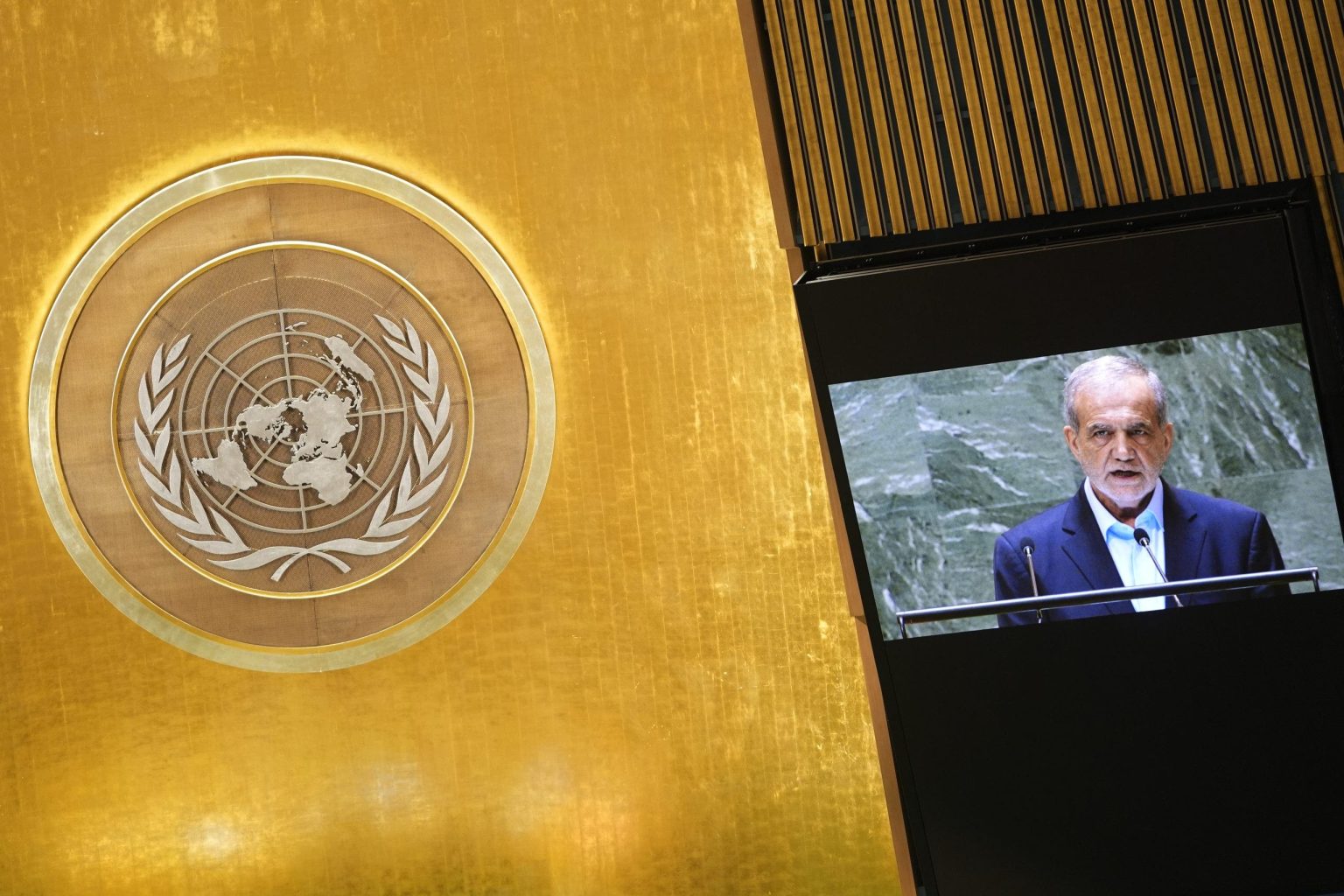In his address to the 79th United Nations General Assembly, Iranian President Masoud Pezeshkian claimed to be a peacemaker in the Middle East while accusing Israel of supporting terrorism. Pezeshkian called for the U.N. to examine modern history, stating that Iran has only defended itself heroically against external aggression and has offered proposals for peace and stability in the region. However, Iran’s involvement in proxy wars in Syria and Yemen, as well as its support for terrorist organizations like Hamas and Hezbollah, paint a different picture of its role in the region.
Iran’s deep involvement in the Middle East also extends to supporting terrorist networks opposed to Israel and providing weapons and funding to groups like the Taliban and al Qaeda. Despite claiming to seek peace and security for all, Iran’s actions have raised concerns about its true intentions. Additionally, Iran’s alignment with adversarial nations like Russia and North Korea further complicates its role in global conflicts such as Russia’s war in Ukraine.
Pezeshkian called for a new paradigm to address global challenges, focusing on opportunities rather than perceived threats. He urged neighboring countries to unite with Iran for the greater good of the Middle East. While expressing a willingness to move forward with Washington, despite past tensions and sanctions, Pezeshkian’s comments were met with skepticism. Some experts believe that his words were more about propaganda and deflecting attention from Iran’s nuclear program and support for anti-Israel activities.
Despite Pezeshkian’s attempts to appeal to the international community by offering the prospect of renewed diplomatic agreements, his regime’s actions, especially in relation to nuclear weapons development, continue to raise concerns. By blaming former U.S. President Trump and hinting at a return to the 2015 nuclear agreement, Pezeshkian aims to win support from certain factions in Washington and Europe. However, these efforts are unlikely to sway either side of the political aisle as Iran faces increasing scrutiny for its nuclear ambitions and support for armed conflicts in the region.


